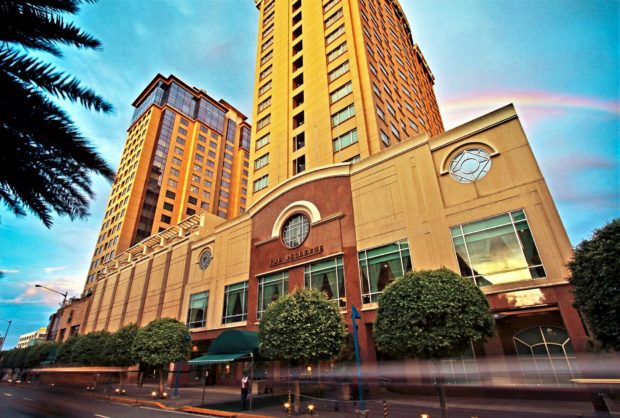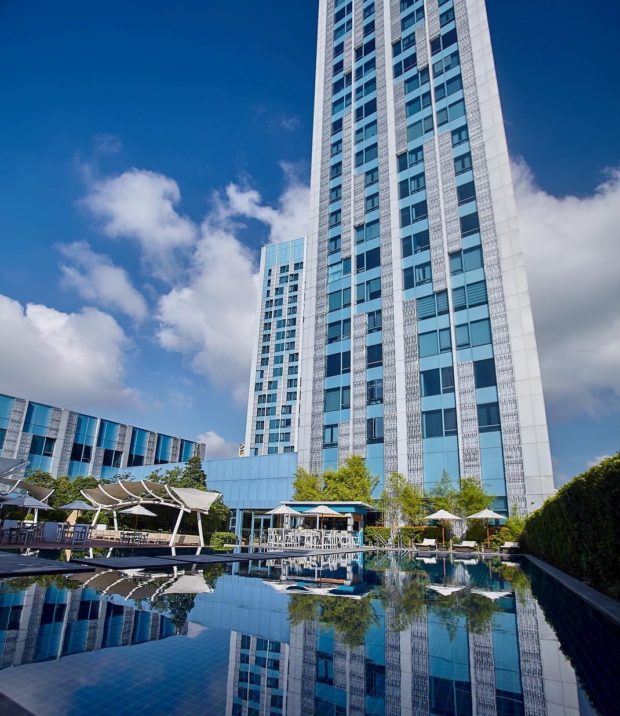The tourism industry has been one of the hardest hit by the novel coronavirus (COVID-19), even as early as the latter half of January, given the spike of confirmed cases across Asia.
Taking stock of the situation, leading hospitality establishments in top destinations instituted health protocols and precautionary measures as a response to the situation, deriving guidance from the Department of Health (DOH) and the Department of Tourism (DOT).
Bellevue Hotels and Resorts implemented across its properties stringent measures such as thermal scanning of body temperature of guests, suppliers and employees; deploying automatic hand sanitizer dispensers in common areas; using top-of-the-line cleaning and disinfecting agents; mandating the employees’ use of face masks in guest contact areas; and having a nurse on duty 24/7. It also recently put in place additional measures such as social distancing in elevators and limiting capacity to five persons; as well as limiting its restaurant outlets only for take out. Its main dining outlet, Café D’ Asie, which offers buffet, is implementing a social distancing scheme wherein tables are set up at least a meter apart. These preventive measures are conspicuously posted in public areas for the easy reference of guests.
This group runs The Bellevue Manila, B Hotel Alabang, B Hotel Quezon City, and The Bellevue Bohol.
Meanwhile, other major players located within Filinvest Corporate City in Alabang such as Acacia Hotel and Vivere Hotel also implemented health protocols set in place by the government.
Similarly, local chain Chroma Hospitality assured its guests of adhering to the highest standards of sanitation and cleanliness for the Crimson or Quest hotels. Owned by Filinvest Hospitality Corp., Chroma is the management company behind Crimson hotel brand in Alabang, Mactan and Boracay, as well as Quest hotels in Cebu City, Clark and Tagaytay City.
Measures included thermal scanning in all entrances and the parking structure, as well as having health declaration forms upon check-in. Associates were trained to identify suspected guests who may need medical evaluation. Medical teams on standby are likewise trained for screening and assessment using the Decision Tool of the DOH Quarantine Guidelines. The company’s hotels have designated holding rooms to isolate identified suspected guests, and are implementing stricter monitoring of food safety and hygiene practices. Guest rooms, suites and villas undergo thorough disinfecting and sanitizing prior to arrival of guests. To provide flexibility, Chroma is allowing guests with previous bookings to amend their stay until Dec. 15, 2020.
For its part, the Newport City earlier announced the suspension of its gaming operations at Resorts World Manila and the temporary closure of the Newport Mall for the duration of the enhanced community quarantine. Because of its proximity to the Ninoy Aquino International Airport, the township has put in place security, safety and health measures even before the outbreak of the COVID-19.
Hotels here, such as Manila Marriott Hotel and Sheraton Manila Hotel, have ceased accepting guests as of March 18. Moreover, Belmont Hotel and Savoy Hotel said they are just servicing their existing visitors and will eventually close after the last guest leaves next week. During the period of closure, a thorough sanitizing and disinfection will be done in the hotels to provide a safe environment once operations resume.
“We care about everyone’s safety in the midst of this global issue. Stay safe and be healthy,” said the identical statement with a hopeful note.
These measures, however, have been rendered moot and academic as hotels are no longer allowed by the government to accept new bookings during the enhanced community quarantine to contain the transmission of COVID-19.
“No new booking accommodations shall be permitted. Provided further that in all of the foregoing, hotel operations shall be limited to the provision of basic lodging to guests,” said Cabinet Secretary Karlo Nograles quoting the decision of the Inter-Agency Task Force for the Management of Emerging Infectious Disease.
Despite the multi-billion peso loss, tourism stakeholders from both the government and private sectors believe that the industry will eventually bounce back because of its resilient nature.



